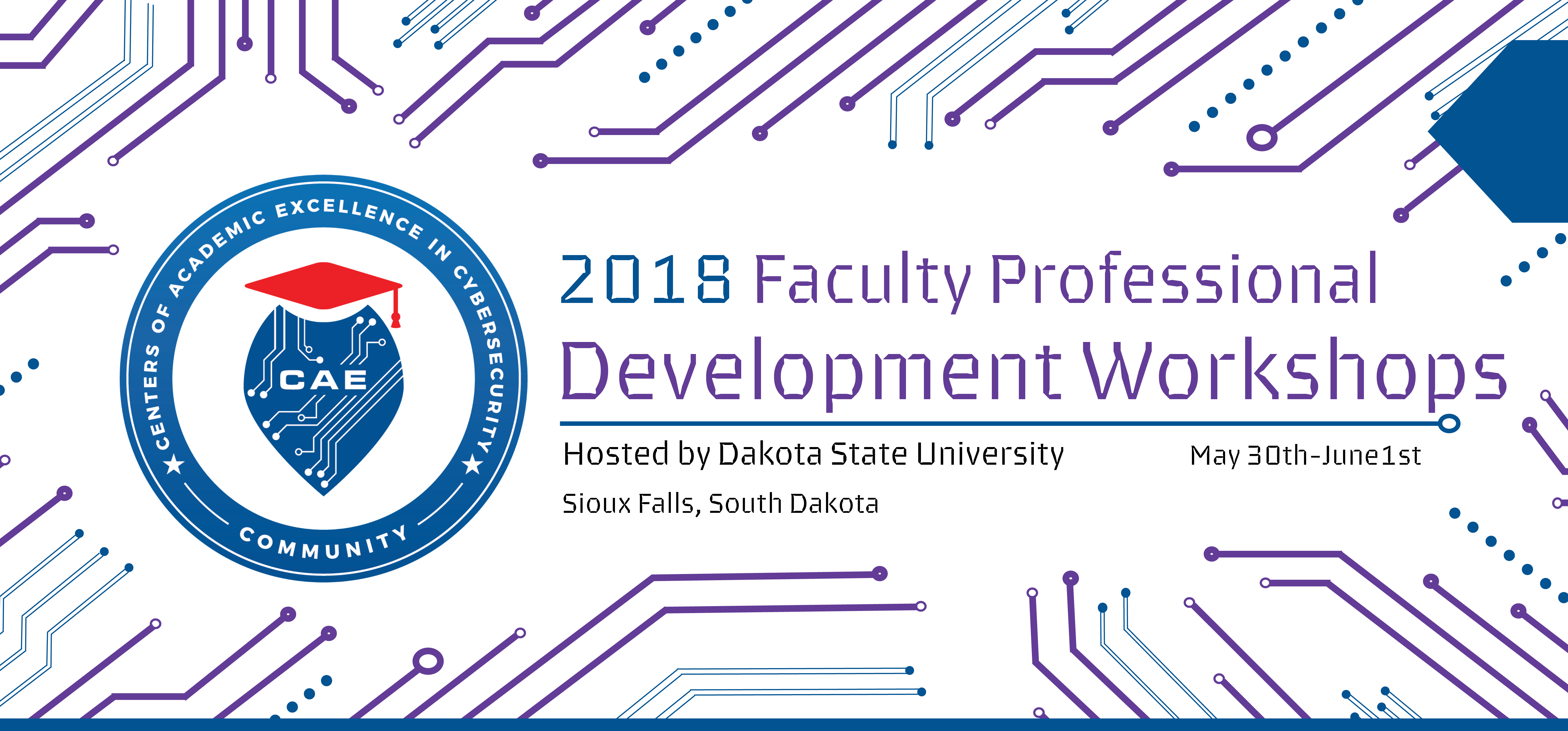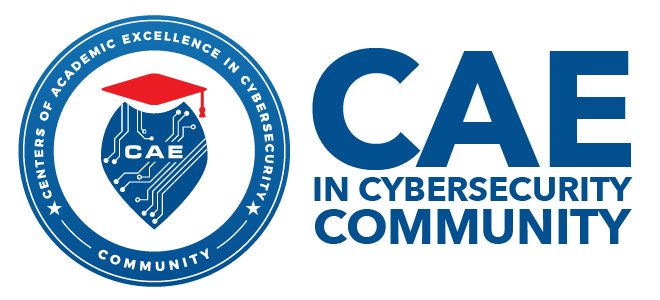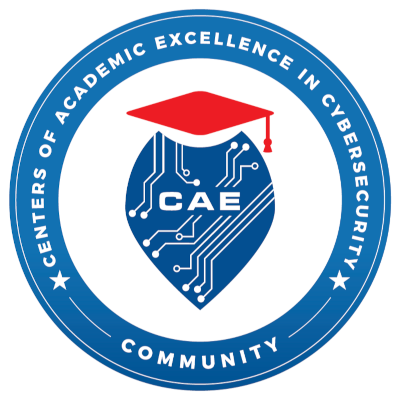
Greetings CAE in Cybersecurity Community! From Wednesday, May 30th, 2018 to Friday, June 1st, 2018, Dakota State University, sponsored by the National Security Agency, is hosting a faculty professional development workshop for all faculty of CAE designated colleges and universities. This workshop will take place at the Downtown Holiday Inn, 100 W 8th St, Sioux Falls, SD 57104.
WORKSHOP INFORMATION
These workshops will take place concurrently over 3 days (with 21 hours of instruction). Attendees are only allowed to attend one workshop, with a limit of 25 attendees per workshop. Each workshop will provide attendees with PowerPoint slide decks that can be used for instruction in their classroom, hands-on labs and demos, suggest appropriate text books, and provide a sample course schedule. Attendees will also get ongoing support from the faculty trainer after the workshop is completed.
WORKSHOP TOPICS
You may attend one out of four faculty professional development workshops. These topics include:
[/html] [accordions] [accordion title="Malware Analysis" active="0" different_values="0"] [html format="ckeditor" different_values="0"]This topic area will consist of the following courses and modules:
Undergraduate course:
- Creating a safe lab environment & handling malware
- Basic analysis - strings, hashing and file formats, open-source intelligence (VirusTotal, malwr, etc.)
- Executable file formats (PE, ELF, Mach-O, et cetera)
- Windows API
- Detecting packers and code obfuscation
- Monitoring tools (Wireshark, Process Monitor, introspection through virtual machines)
- Sandboxes
- Delivery mechanisms (spam/spear-phishing, office documents, other attachment types)
Graduate course:
- Technical analysis of exploit kits
- Reverse engineering packing and other code obfuscation techniques
- Reverse engineering persistence techniques (process hollowing, etc.)
- Malware use of shellcode
- Privilege escalation techniques
- Data compromise techniques (browser hooking, ransomware, memory scraping
- Fuzzing/RE for vulnerabilities
- Focus on binaries, but could also cover webapp, etc.
- Would also include a broad survey of bug types/classes
- Analyzing crashes for exploitability
- Debugging
- More RE
- Turning footholds and subtle bugs into RCE
- Writing a working exploit
- Scripting
- MSF module writing?
- Bypassing mitigations (DEP, ASLR, SEH, GS, NX, PIE, and other alphabet soup)
- Chaining bugs for better exploits
The wireless and cellular mobile workshop:
- Will start with basic radio frequency (RF) concepts and
- Build up through how to create a GSM base station.
Along the way:
- We will use software defined radios to demonstrate concepts such as:
- Frequency selection,
- Bandwidth, and
- Signal modulation.
We will learn:
- The different components of a GSM signal and
- See how we can view GSM frames via Wireshark.
Finally, we’ll discuss:
- Various security implications of using wireless technologies,
- Including cellular as well as 802.11 wireless.
This technical Incident Response workshop will discuss the six phases of an incident response:
1.1. Preparation,
1.2. Identification,
1.3. Containment,
1.4. Eradication,
1.5. Recovery, and
1.6. Follow-Up.
Students will perform an assessment on a small network of VMs, to identify and determine the scope of a mock incident.
The course will present and utilize forensic investigation techniques, and log aggregation tools to aid in the identification of malicious activity across multiple systems.
[/html] [/accordion] [/accordions] [html format="ckeditor" different_values="0"]
WORKSHOP LOCATION INFORMATION
This workshop will take place at the Downtown Holiday Inn, 100 W 8th St, Sioux Falls, SD 57104. The airport code for Sioux Falls is FSD. This airport is served by Delta, United, American, Frontier, and Allegiant airlines. You can get direct flights from Minneapolis, Atlanta, Chicago, Dallas, Denver, Phoenix, Orlando, Tampa, Las Vegas, and Los Angeles. Or if you plan on driving to the workshop, you will travel along Interstates 90 and 29.
[/html]
